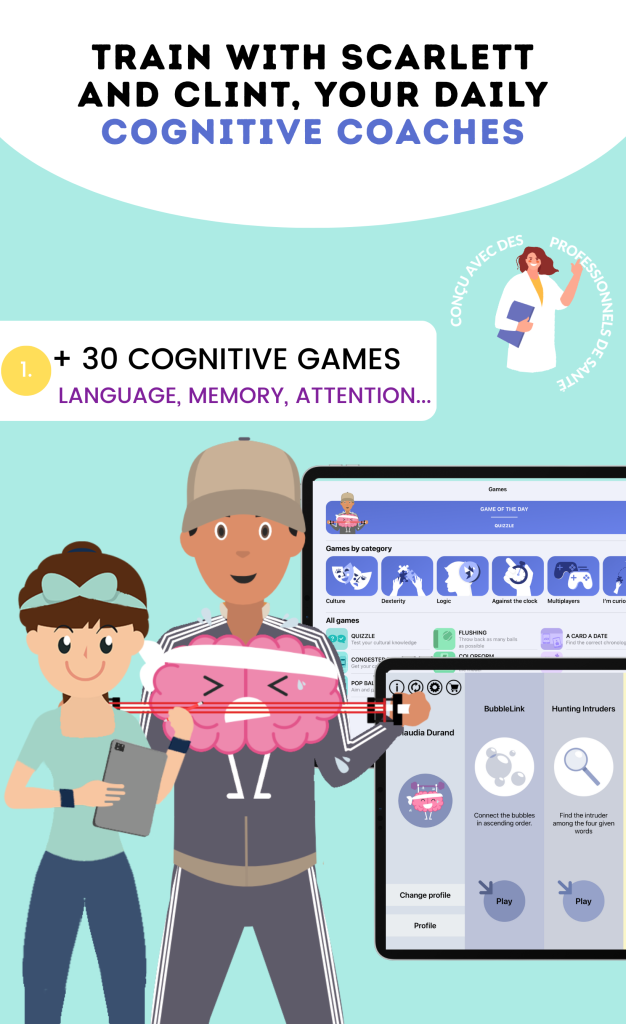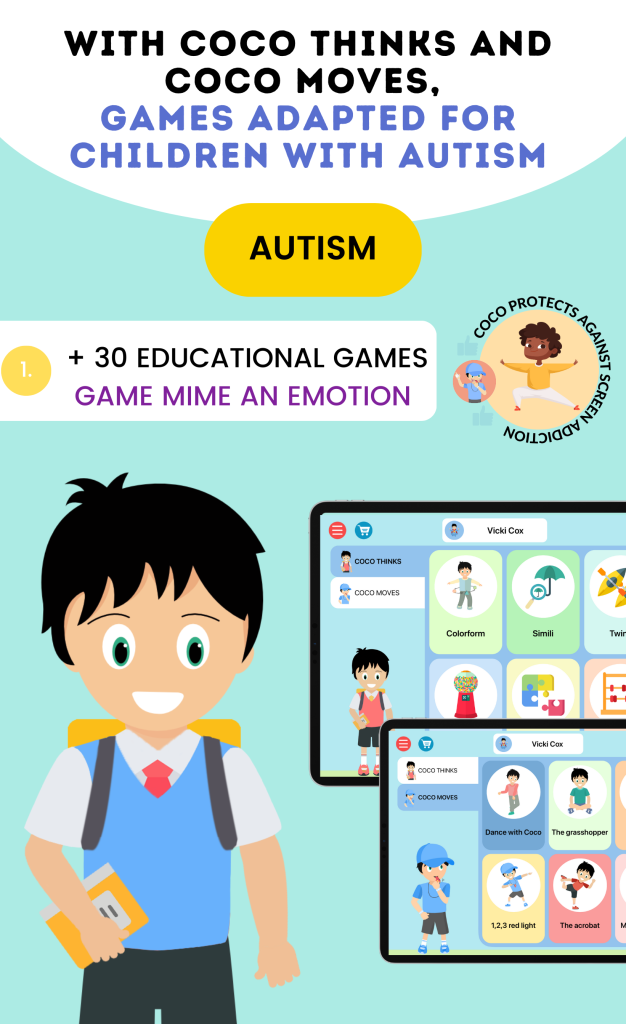

Autism in adults must be well managed to ensure a good quality of life for the patient. It is therefore important to implement measures to provide appropriate support. Unfortunately, the systems in place for adults are much less significant than for children.
We therefore advise you to pay particular attention to the care as soon as the case of autism is diagnosed in an adult. If you don't know how to proceed, you can start by reading this article without delay!
What is autism?
Autism is a neurodevelopmental disorder. The first symptoms can manifest around the age of 3. The symptoms can affect communication, social interactions, or behavior. The severity of these symptoms varies, which is why autism can be identified more or less late in a person's life. It can therefore happen that a person discovers their autistic diagnosis in adulthood.
There is no treatment for autism, but it is possible to undergo therapy to learn to overcome one's vulnerabilities and difficulties.
Establishing impeccable quality of life for an adult with autism
First of all, it is important to consider the autistic person in every decision concerning them. This point is essential to help them have a good quality of life. Therefore, it is necessary to take the time to communicate and allow this adult the freedom to decide their own life. You can then implement measures to help them live the life that the autistic person desires.
It will also be important to help them integrate into a regular environment so that they continue to interact with their circle normally. Their life will simply be accompanied by various aids to allow you to benefit from a personalized setup.
Whatever decisions are made regarding the support of the autistic adult, do not forget to remain flexible. Indeed, it will be important to personalize the measures to adapt to the situation in real time. Symptoms may worsen overnight and require more significant support.
We also advise you to take care of the environment of the autistic adult to help them benefit from listening and kindness day after day. Of course, it is essential to ensure that you surround yourself with qualified professionals to successfully obtain help regarding the measures to be taken. As a family member, you must remain present in the life of an autistic adult to provide them with a reference through appropriate support.
Finally, it will be important to set up appointments to participate in various workshops and develop their abilities in a welcoming environment. It will be possible to benefit from numerous interventions to help the adult develop their communication, as well as their motor skills. Every detail will help an autistic adult feel loved and surrounded in their life to thrive safely.
The symptoms in autistic adults
Autism is a very varied disorder that can manifest with symptoms in different areas and with varying severity. Generally, autism is diagnosed when the person is still a child, but when the symptoms are milder, it is possible for the person to discover they are affected by autism in adulthood.
In adulthood, the symptoms are more focused on relational and emotional aspects. You may see a low interest in others and difficulties in communication. The person with autism does not understand sarcasm, humor, or the hidden meaning of words. For them, every sentence means its exact literal meaning.
Additionally, the person with autism tends to talk only about a few specific topics, without trying to understand the other person's interest.
This communication difficulty does not help individuals with autism make friends and can lead to misunderstandings.
Another symptom that can be seen in a person with autism is the need for routines. These routines allow the person to control their life and environment. For an autistic person, variables, changes, or unexpected events are sources of frustration and imbalance.
The life of an adult with autism
It is important to keep in mind that autism is a very broad disorder and that each person is different. Each individual can have a different future, depending on the severity of the symptoms, but also, and above all, on the support they will receive and their passions or personality.
Finding one's place in society is never easy. For an adult with autism, it will be even more difficult. You must discover the person's qualities and invest in them to help with integration.
Moreover, to integrate into social life or work, you can also contact associations that help individuals with autism find their path.
When the symptoms are mild, an adult with autism can lead a normal life with a job and a family. Support is crucial in this case to allow the person to feel comfortable in their life and to find strategies to overcome their difficulties.
Therapy for autism
When there is a diagnosis of autism, the person must be cared for by a healthcare professional. The therapy will aim to identify the person's vulnerabilities to provide them with the strategies and tools to maintain their autonomy in daily life.
It is also important for the family to participate in sessions or appointments with healthcare professionals. This can help them understand how to talk and act with the person with autism.
It is not only the adult with autism who must adapt, but the environment must also adapt to them.
A tool to improve quality of life
My Dictionary is an application available on tablet, which allows the user to express their desires and needs with the help of a bank of images grouped into 6 themes and fully customizable.
This application is useful for adults with autism who have severe communication disorders. Sometimes, the person may have difficulty communicating their desires or needs. My Dictionary then becomes an intermediary to communicate what cannot be expressed with words. The application can be used as a substitute for communication or as support in more frustrating situations for the person.
It is important to be able to add personalized images to allow the person to express their true needs.
CLINT, your brain coach
Clint is an application on tablet or smartphone with more than 30 games to stimulate cognitive functions. With Clint, you can improve your memory, attention, logic, and also your language. For an adult with autism, it is important to work on all cognitive functions to integrate into social life and find a job.
The application also offers the possibility to challenge friends with online games. This allows the person with autism to stay in touch with their friends, even from a distance. Additionally, the application can become a new topic of conversation when they meet in person.
The daily challenges of autistic adults
Living with autism in adulthood can present unique challenges. These challenges can vary depending on the severity of the symptoms and the supports available. Here are some common difficulties that autistic adults may face:
- Social interactions: Difficulties in understanding social norms can make interactions with others stressful.
- Employment: Finding and maintaining a job can be complicated due to managing relationships with colleagues and communication requirements.
- Managing anxiety: Unexpected changes or new situations can lead to high anxiety, making daily life difficult.
- Autonomy: Daily tasks, such as grocery shopping or managing finances, can seem overwhelming without support.
Adaptation strategies for autistic adults
To improve the quality of life of autistic adults, several adaptation strategies can be implemented. These approaches aim to strengthen skills and reduce stress. Here are some effective strategies:
- Establish routines: Creating a daily routine can help reduce anxiety and provide structure.
- Use visual aids: Calendars, task lists, and visual reminders can facilitate organization and planning.
- Practice mindfulness: Meditation and relaxation techniques can help manage stress and improve emotional well-being.
- Communicate clearly: Using simple and direct language can help avoid misunderstandings.
Resources and supports available
There are many resources and supports available for autistic adults and their families. These resources may vary from country to country, but some are widely accessible:
- Support groups: Participating in support groups can provide a space to share experiences and advice.
- Professional services: Therapists, counselors, and specialized coaches can provide personalized support.
- Applications and digital tools: Many applications are designed to help manage emotions and communication.
- Local organizations: Many associations offer resources, training, and activities tailored for autistic adults.
The role of the family in support
The family plays a crucial role in supporting autistic adults. Strong family support can make a significant difference in their quality of life. Here are some ways the family can help:
- Encouragement of autonomy: Helping autistic adults make decisions and manage their daily lives strengthens their independence.
- Education about autism: Understanding autism allows family members to better support their loved ones.
- Creating a positive environment: Encouraging a welcoming and understanding family environment can reduce stress and promote well-being.
- Participation in activities: Engaging in shared activities can strengthen bonds and provide opportunities for social interaction.


